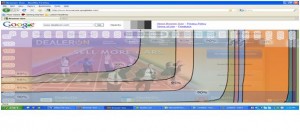I wrote on Friday about the changes Facebook has made to their landing tab capabilities for non-authenticated businesses, and today I want to let our auto dealer customers know a couple of ways to get around this blow to small business social media and Facebook’s marketing capabilities. Just to make things clear, your car dealership page will still be able to create and use custom tabs on your Facebook page, however you cannot designate one of them to be the first tab visitors land on anymore.
One way to customize the content your new Facebook visitors will see is to change your profile picture. Consider adding text or an image that directs people to the tab you would like them to see. Some examples are “Click on the Sweepstakes tab to enter” or “Watch our video greeting on the Welcome tab.” This way your dealership Facebook visitors will see the call to action you create regardless of the tab they land on when first reaching your page.
You can also direct your Facebook traffic to the intended tab by linking to it. Each created tab has its own URL, so when you link to Facebook from your auto dealer website or in your emails, include the link to the intended tab.
If you have questions about your car dealership social media campaign, contact the DealerOn marketing department. We have the tools, knowledge, and insight to help auto dealers remain successful while marketing online, no matter how many changes occur.[/fusion_builder_column][/fusion_builder_row][/fusion_builder_container]


